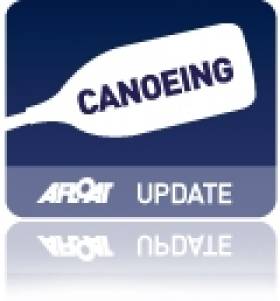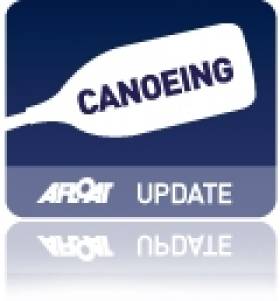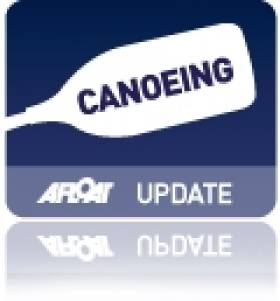Displaying items by tag: Tacen
Jegou Ranked in Top Twenty Canoeists after World Cup Final
#Canoeing: Liam Jegou finished 14th at the canoe slalom World Cup Final in Tacen in Slovenia. The 20-year-old was less than a second from qualification from the semi-final. The course underwent major changes after building work failed: the number of gates was limited to 14. Jegou emerged with a season ranking in the World Cup events of 17th of the 103 competitors. He is in his first season on the circuit as a senior paddler.
Canoe Slalom World Cup Final, Tacen Slovenia (Irish interest)
Men
C1 Semi-Final: 14th - L Jegou 110.9 seconds.
Canoeist Heurteau Finishes Just Short of World Cup Final
#CanoeSlalomTacen: Ireland’s Ciarán Heurteau came within 1.24 seconds of qualifying for the final of the Canoe Slalom World Cup in Tacen in Slovenia this morning. In an exciting semi-final, the 26-year-old had a clear run in 107.22 seconds. This slotted him into eighth with eight competitors to go and he was eventually pushed into 15th. The 10th-placed qualifier clocked 105.98.
Eoin Rheinsich came down the course in a raw time of 108.19, but a touch on gate 13 cost him a two-second penalty. He finished 25th.
Canoe Slalom World Cup, Tacen, Slovenia – Day Two (Irish interest)
Men
K1 – Semi-Finals (Top 10 Qualify for Final): 15 C Heurteau 107.22, 25 E Rheinisch 110.19 (incl 2 sec pen)
Canoeists Heurteau and Rheinisch Both Make Semi-Finals
#CanoeSlalomTacen: Eoin Rheinisch and Ciarán Heurteau both qualified for the semi-finals of the men's K1 at the canoe slalom World Cup at Tacen in Slovenia today. Heurteau clocked an excellent time of 100.02 seconds with no penalties in his second run this afternoon. The French-born Irishman was under pressure as he had not guaranteed qualification with his first run.
Rheinisch did not compete in the second run as his first-run time of 102.21 had proved sufficient to qualify him to tomorrow’s semi-finals.
Hannah Craig did not qualify in the women's K1.
Canoe Slalom World Cup, Tacen, Slovenia – Day One (Irish interest)
Men
K1 – Heats (Top 40 Qualify): 9 C Heurteau 100.02 seconds (2nd run); 25 E Rheinisch 102.21 (1st run); 67 P Hynes 118.28 (2nd run; incl. 6 sec pen)
Women
K1 - Heats (Top 30 Qualify); 37 H Craig 170.88 (2nd run; incl 52 sec pen)
Ireland Canoeist Rheinisch Starts Well in Tacen World Cup
#CanoeSlalomTacen: Eoin Rheinisch started well at the Canoe Slalom World Cup in Tacen this morning. The Ireland paddler had a clear first run in a time of 102.21, placing him fourth in the K1 competition at this very early stage. Ciarán Heurteau was judged to have had a touch at gate four, adding a two-second penatly to his time of 104.77, and leaving him down the rankings. Patrick Hynes had a run of 123.17, including 10 seconds in penalties. The second run is due later today.






























































